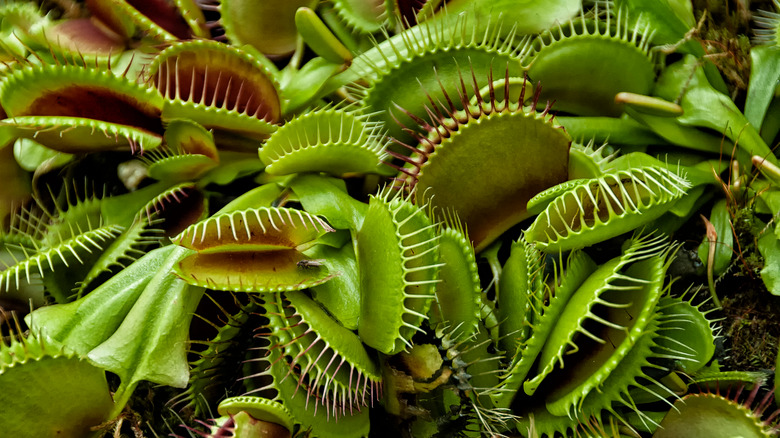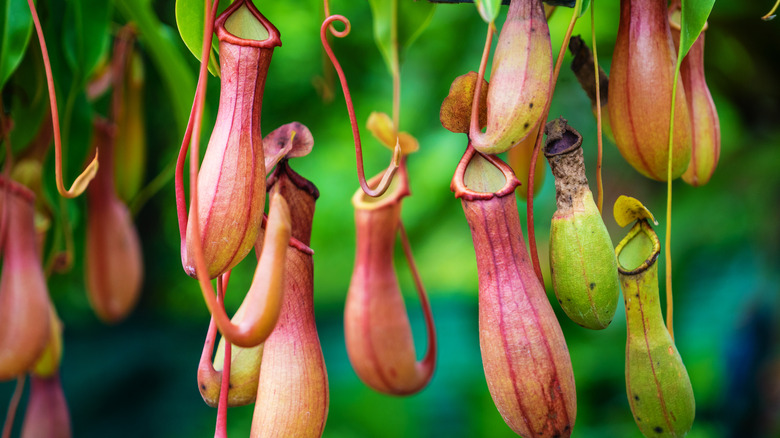Why You Should Probably Stop Buying Carnivorous Plants
Many people searching for an exotic new houseplant to add to their collection are often drawn to carnivorous plants. The current trend can be traced back to 2020 when a Twitter user posted a video of his venus flytrap in action as it captured its prey, per Yahoo. The video went viral and compelled loads of people to flock to their gardening stores to purchase carnivorous plants for themselves. In theory, these species sound like a great addition to any household, since they lure, trap, and eat pesky insects and other bugs. It's a win-win for plant and owner, right?
Not exactly. Even if carnivorous plants are cheap and easy to buy at your local gardening center, some gardening experts are against the trend, per The Spruce. So why shouldn't you purchase the plant that bites back? Keep reading to find out why a carnivorous plant may be great on your Instagram but not so great in your house.
Carnivorous houseplants are difficult to grow and care for
Plant experts Maria Failla and Erin Kobayashi talked to The Spruce about nine types of plants that people should think twice about purchasing for their home. Carnivorous plants, like venus flytraps, pitcher plants (pictured above), and sundews, made it onto their list because they're difficult to keep alive. "Carnivorous plants need particular care that is not similar to houseplant care," Failla said.
For example, the most popular and recognizable of all carnivorous plants, the venus flytrap, requires lots of humidity because it's native to the bogs of South Carolina and North Carolina, according to Better Homes & Gardens. Thus, they usually do best in terrariums, which remain consistently moist. They also need acidic soil, so your typical potting soil won't do, and you can't hydrate them with regular tap water because it's too alkaline and may contain damaging minerals. You should use distilled water only.
This should give you an idea of how picky these plants can be. So, if you lack a green thumb, you should probably steer clear of carnivorous plants and aim for something a bit more low-maintenance.


